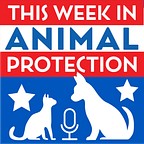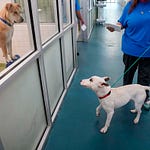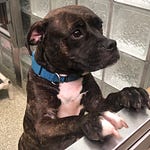In 2000, at the time that San Francisco was the safest urban community for homeless pets in the United States, the Board of Directors for The San Francisco SPCA was considering whether to spend $20 million on a fee-for-service veterinary hospital. It would be the largest in North America and equipped with state-of-the-art diagnostic equipment and specialists of all kinds. As Vice President in charge of homeless animal programs and other community-based initiatives, I argued against it.
It was an unnecessary and costly effort that would provide services for those who needed it the least: the pets of wealthy San Franciscans who already had access to numerous veterinarians, existing specialty hospitals, and (if all else failed) the University of California Davis School of Veterinary Medicine less than two hours away. Our mission, as I saw it, was to fill gaps in the safety net, not to duplicate existing efforts.
Defying my boss who was pushing for the football field-sized hospital, I told the Board that we should instead make San Francisco No Kill, banning the killing of all but irremediably suffering animals, while simultaneously expanding existing veterinary and behavior programs for those who needed them the most: the pets of the poor, the pets of the homeless, community cats, and those animals who did not have a human caretaker willing to provide medical care to save them — animals at the city pound.
At the time, we were already providing low-cost veterinary care for the pets of the poor and free veterinary care for the pets of homeless people. We also provided security deposit guarantees for renters with SPCA-adopted pets. And after negotiating animal-friendly policies in Housing Authority properties, we were working on a city initiative to ban housing discrimination for renters with pets. I explained to the Board that we just needed to expand these efforts by spending a fraction of the hospital allocation and the payoff would be enormous: we would not only create the nation’s first No Kill community, we would be the first city in the country to enact what I called “cradle-to-grave” universal care. For the first time anywhere in America, animals would be guaranteed medical care, the ability to stay in their existing homes, and, if need be, new, better homes from the moment they were born until the moment they drew their last breath.
The Board opted for the hospital.
I would ultimately leave the organization and, a year later, create the first No Kill community in Tompkins County, New York. There have been hundreds since, but to this day San Francisco is not one of them. Indeed, what happened next in San Francisco was both disappointing and predictable. Under intense financial pressure as a result of the enormously expensive hospital, the SPCA’s feral cat program was virtually abolished. The spay/neuter clinic, the core of San Francisco’s early accomplishments, restricted its hours, significantly raised fees and, at one point, even closed its doors. On a day that came to be called “Black Monday,” the legions of feral cat caretakers who made their regular pilgrimage to use the services of the spay/neuter clinic were turned away. Plans to phase out programs for the pets of the poor and homeless animals were in full swing. Entire departments, including those which protected the city’s wildlife, worked to find apartments for renters with pets, and advocated for stronger protections for animals, were eliminated. What was once the crown jewel of the No Kill movement quietly passed into obscurity.
Twenty years later, no American community guarantees universal care for companion animals — though not for want of trying. When I ran the animal shelter in Tompkins County, NY, not only did we create a No Kill community, but we took seriously our mission to assist people who could not adequately afford to care for their animals. As Director of The No Kill Advocacy Center, I’ve been working on passage of:
The Companion Animal Protection Act which would ban the killing of all but irremediably suffering animals in shelters, while expanding veterinary services;
The Do No Harm Act, which would make it illegal for anyone else, including veterinarians, to kill healthy and treatable animals; and,
The Fair Housing Act, which would ban discrimination against renters who live with animal companions.
These model laws would move the needle forward to that end. Moreover, the number of other voices calling for universal veterinary care is multiplying.
A recent article in Slate, for example, makes four arguments for the proposition:
Universal veterinary care will improve human health. Specifically, “Dogs have been shown to improve stress and lower blood pressure, and especially to increase physical activity in people who might otherwise be sedentary. Widely deployed, dogs can even help lower personal, professional, and governmental medical costs. Consider canines a public health tool, in a sense: As more Americans adopt dogs, we have the potential to become a healthier nation as a result.” (The author also cites reduced criminal recidivism, less loneliness and other mental health benefits.)
“The majority of American dog owners today cannot afford emergency vet care” and even routine or non-emergency veterinary costs are difficult for people. (The author also notes that many pet insurance programs are both expensive and lackluster.)
While universal health care for people might be considered a priority for many, “our politicians clearly are not going to agree on health care reform anytime soon, given that it’s one of the most politically divisive topics in the country. Dogs [and other animals], on the other hand, are something people seem to agree on across the political spectrum.”
Living with animals should not be a privilege for the rich: “those who want to live with dogs shouldn’t ever have to lose sleep worrying about how to cover their beloved pets’ medical bills. Life with a dog [or other animal] should not be a luxury.”











